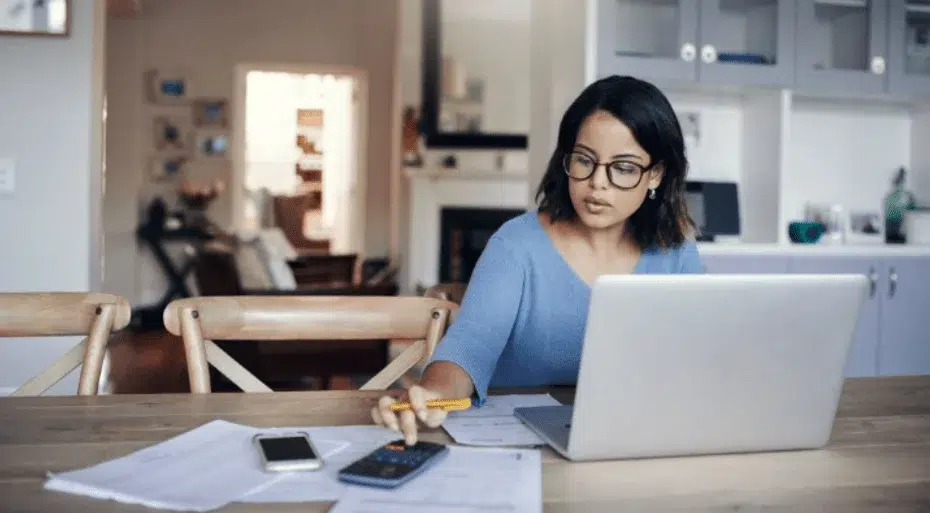Being an artist in the UK is all about pouring your heart into your work whether it’s painting, music, or crafting embroidered designs but managing your finances can feel like a total drag. That’s where accountants for artists come in, offering tailored financial expertise to help creatives navigate the unique money challenges of the art world. From irregular income to tricky tax rules, UK artists face a host of financial hurdles. Let’s dive into the biggest challenges, how specialist accountants can help you overcome them, and some practical tips to keep your finances in check so you can focus on creating.
The Unique Financial Challenges UK Artists Face
Artists aren’t your typical 9-to-5 workers, and that’s what makes their financial situation so unique. Here are the top challenges UK artists deal with:
Irregular and Unpredictable Income
Whether you’re a freelance illustrator, a musician gigging across London, or an embroiderer selling on Etsy, your income can swing wildly. One month you’re flush with commissions; the next, you’re scraping by. This rollercoaster makes budgeting and saving a nightmare.
Complex Tax Rules
The UK tax system can feel like a maze, especially for self-employed artists. You’ve got to deal with Self Assessment, VAT (if your turnover hits £90,000), and quarterly Making Tax Digital (MTD) filings. Missing deadlines or misunderstanding rules can lead to fines or overpaying taxes.
Tracking Deductible Expenses
Artists have tons of business expenses: brushes, thread, studio rent, travel to art fairs—but keeping track of them is a chore. Miss a deductible expense, and you’re leaving money on the table come tax time.
Balancing Creative and Business Tasks
Running an art business means juggling creation with admin work. Bookkeeping, invoicing, and tax prep can eat up hours you’d rather spend on your craft, leading to burnout or costly mistakes.
Scaling a Creative Business
Want to grow your Etsy shop or start selling at markets? Scaling up means new costs—like equipment or marketing that can strain your finances if not planned properly.
These challenges are real, but with the right help, you can tackle them and keep your creative spark alive.
How Accountants for Artists Can Help
A specialist accountant who gets the artist’s life can make all the difference. Here’s how they help UK artists overcome financial hurdles:
Smoothing Out Irregular Income
Accountants can create a budget that accounts for feast-or-famine income, helping you set aside money for lean months or taxes. They might even suggest income-averaging strategies to lower your tax bill.
Navigating UK Tax Rules
From registering for Self Assessment to handling VAT or MTD filings, accountants for artists know the UK tax system inside out. They ensure you file on time, avoid penalties, and pay only what you owe.
Maximizing Deductions
Artists have unique expenses, like art supplies, studio rent, or travel to exhibitions. A specialist accountant knows exactly what you can claim, such as:
- Materials (paints, threads, or clay).
- Marketing costs (website hosting, social media ads).
- Travel for gigs or art shows.
- A portion of home expenses if you work from a home studio.
They’ll dig deep to find every deduction, reducing your taxable income and saving you cash.
Streamlining Bookkeeping
Hate tracking receipts or logging sales? Accountants can handle bookkeeping or recommend user-friendly tools like QuickBooks or Xero, tailored for artists, to keep your finances organized and audit-ready.
Planning for Growth
Dreaming of a bigger studio or more inventory? Accountants can help you budget for growth, find cost-effective solutions, and even advise on business structures (like going from sole trader to limited company) for tax savings.
With a specialist accountant, you get a financial partner who understands the creative hustle and helps you save money.
Practical Tips for Managing Artist Finances
Beyond hiring an accountant, here are some DIY tips to tackle financial challenges:
- Track Every Expense: Use an app like Wave or a simple spreadsheet to log all art-related costs, from supplies to travel. This makes tax time easier and ensures you claim every deduction.
- Set Aside Tax Money: Put 20-30% of each payment into a separate savings account for taxes. This prevents surprises when HMRC comes knocking.
- Separate Business and Personal Finances: Open a dedicated business bank account to keep your art income and expenses clear, reducing audit risks.
- Budget for Lean Months: Plan for irregular income by setting aside a buffer during high-earning months to cover slower ones.
- Stay on Top of Deadlines: Mark key HMRC dates (like Self Assessment by January 31 or VAT returns) on your calendar to avoid penalties.
These habits, paired with a good accountant, keep your finances in check without stealing your creative time.
Why Choose Specialist Accountants for Artists?
You might be tempted to go with a generic accountant or DIY your taxes, but here’s why specialists are worth it:
- They Get the Artist Life: They understand irregular income, creative expenses, and the challenges of running an art business.
- Tailored Advice: From deductions to business growth, they offer solutions specific to artists, not one-size-fits-all advice.
- Time Savings: They handle the numbers so you can focus on painting, performing, or stitching.
- Cost-Effective: Many offer affordable rates for freelancers and small businesses, saving you more than they cost.
A specialist accountant is like a creative collaborator, helping you navigate the financial side of your art with ease.
Common Financial Mistakes UK Artists Should Avoid
To keep your finances healthy, steer clear of these pitfalls:
- Not Tracking Expenses: Missing receipts means missing deductions. Keep a digital or physical folder for every art-related purchase.
- Skipping Quarterly Taxes: Self-employed artists need to file quarterly MTD updates and pay taxes on time to avoid fines.
- Mixing Finances: Using one bank account for personal and business expenses can lead to messy bookkeeping and audit headaches.
- Ignoring VAT: If your turnover nears £90,000, you’ll need to register for VAT. An accountant can help you decide if it’s worth it sooner.
- DIY Tax Errors: Filing your own taxes without expertise can lead to overpaying or costly mistakes.
Avoiding these errors saves you money and stress in the long run.
How to Choose the Right Accountant for Artists
Picking the right accountant is key to overcoming financial challenges. Here’s how to find one who clicks with your creative vibe:
- Look for Creative Expertise: Choose an accountant with experience in art-related fields (check their website or ask for client examples).
- Ask About Deductions: Ensure they know the ins and outs of artist-specific write-offs, like studio costs or travel.
- Check Communication Style: You want someone who explains taxes in plain English, not confusing jargon.
- Confirm Pricing: Look for affordable rates tailored for freelancers or small creative businesses.
- Read Reviews: Check online reviews or testimonials to gauge reliability and client satisfaction.
A good accountant feels like a teammate, helping you save money and focus on your art.
Start Taking Control of Your Finances Today
Ready to tackle the financial challenges of being a UK artist? Specialist accounting services are your secret weapon for saving money, staying organized, and keeping your creative spark alive. From maximizing deductions to navigating HMRC’s tax rules, accountants for artists help you overcome the money hurdles so you can focus on what you love creating.For those blending art with embroidery projects, like stitching custom designs for your business or gifts, you’ll need top-notch digitizing to bring your work to life. That’s where Lanop Business & Tax Advisors comes in.




